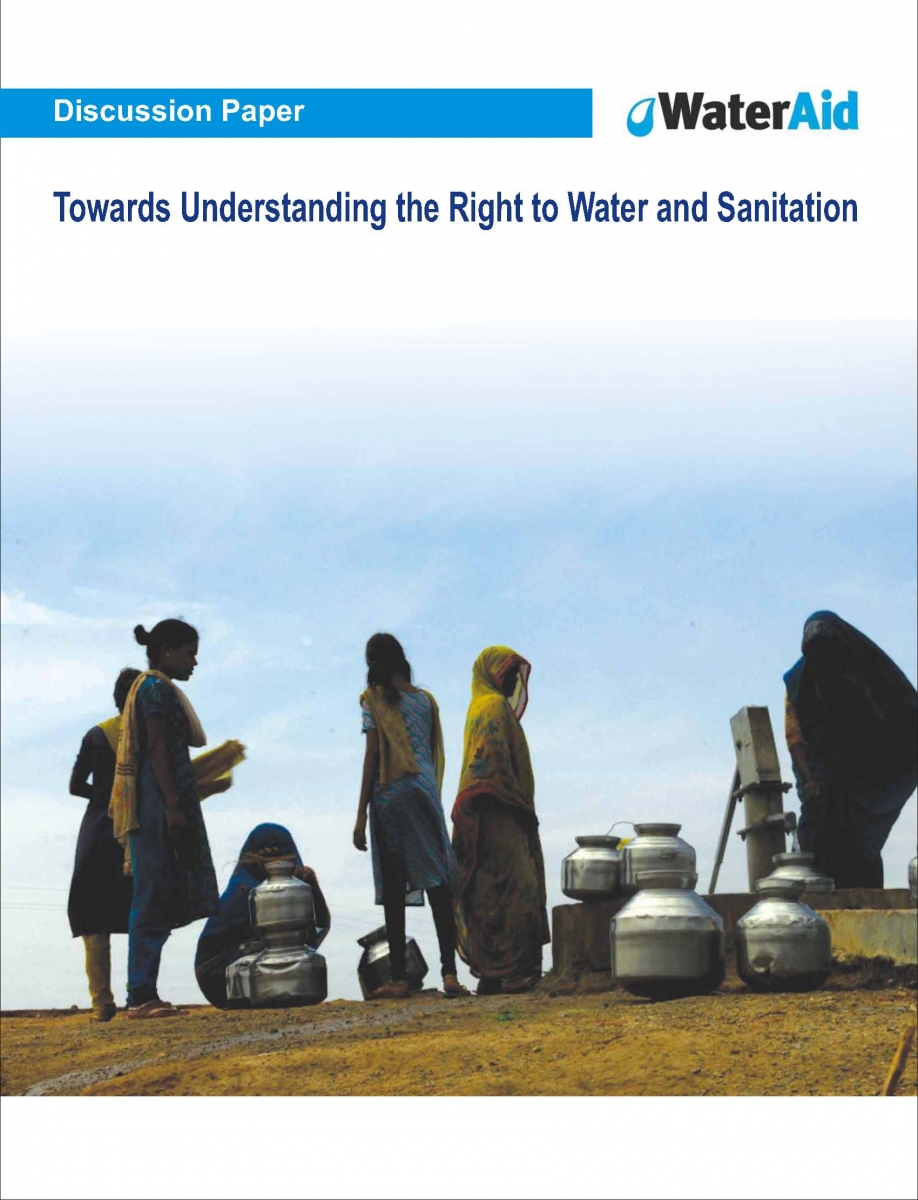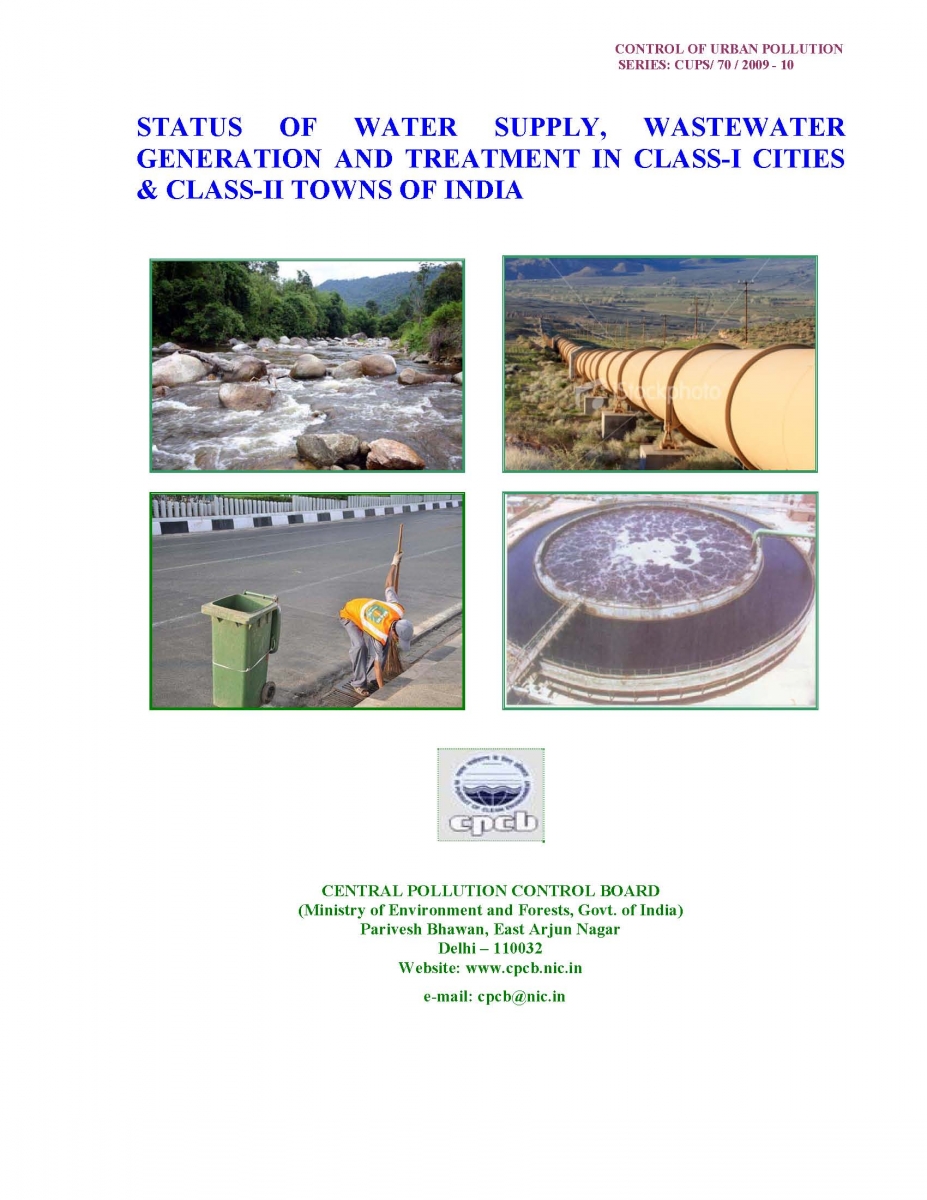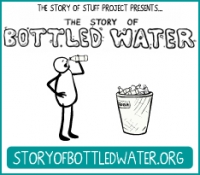/regions/india
India
Fellowship Opportunity for Non-profit Leaders
Posted on 29 Mar, 2010 12:02 PMTake your leadership to the next level

Bioremediation of turbid surface water using seed extract from Moringa Oleifera Lam (Drumstick Tree)
Posted on 26 Mar, 2010 06:38 PMThis research paper describes an indigenous water treatment method, that uses Moringa oleifera (Drumstick) seeds in the form of a water-soluble extract in suspension, resulting in an effective natural clarification agent for highly turbid and untreated pathogenic surface water.
Water should be taught as a special subject in schools and colleges
Posted on 25 Mar, 2010 03:27 PMWater is now the major issue of the globe but the chief concern is that we donn't have an enough remedy. The problem is huge & the solution is little. We are only dealing the post- issue not the pre- issue. In my opinion water problem is now has taken a way of earning money, attending seminar delivering lecturers & only to clap on the verbal argument.
Dug well recharge scheme (2007-08 to 2009-10) - Revised guidelines with amendments to the scheme by the Central Ground Water Board
Posted on 24 Mar, 2010 03:46 AMThe State sector scheme on artificial recharge to groundwater through dug-wells is under implementation over the first three years of the (current) XI Plan Period (2007-12), in 1180 over-exploited, critical and semi-critical blocks/ talukas/ mandals in seven states of the hard-rock peninsular region of India, namely Andhra Pradesh, Maharashtra, Karnataka, Rajasthan, Tamil Nadu, Gujarat and Madhya Pradesh. The target beneficiary of the scheme are farmers who have privately owned wells, in their agricultural land.
Towards understanding the right to water and sanitation - A discussion paper by WaterAid India (2009)
Posted on 23 Mar, 2010 06:27 AM The right to water and sanitation is necessary for the enjoyment of other human rights, including the right to life and human dignity, the right to health, the right to adequate food, the right to development and the right to a healthy environment.
The right to water and sanitation is necessary for the enjoyment of other human rights, including the right to life and human dignity, the right to health, the right to adequate food, the right to development and the right to a healthy environment.
This discussion paper from WaterAid India, examines the need and background of the right to water and sanitation (RTWS), in both the global context (using existing International Human Rights conventions) and in the Indian context (using the Indian Constitution).
The paper lays down specific details of what a RTWS would entail, in terms of exact provisions that citizens could be entitled to. It also details the difference between RTWS and water rights, examines the judicial interpretation of such a right, using analysis of past cases related to RTWS.
Status of water supply and wastewater generation and treatment in Class-I cities and Class-II towns of India - A report by CPCB (2009)
Posted on 23 Mar, 2010 03:34 AM This is the fourth in a decadal series of reports published by the Central Pollution Control Board (CPCB), previous ones published in 1978-79, 1989-90 and 2000, which provides basic information about the status of water supply and sewage generation and treatment of 498 Class-I cities and 410 Class-II towns, along with information on 53 coastal Class-I cities and 35 coastal Class-I towns, besides Ganga Basin as a separate subsection.
This is the fourth in a decadal series of reports published by the Central Pollution Control Board (CPCB), previous ones published in 1978-79, 1989-90 and 2000, which provides basic information about the status of water supply and sewage generation and treatment of 498 Class-I cities and 410 Class-II towns, along with information on 53 coastal Class-I cities and 35 coastal Class-I towns, besides Ganga Basin as a separate subsection.
The story of bottled water (2010): A film about how "manufactured demand" pushes what we don t need and destroys what we need most
Posted on 22 Mar, 2010 11:53 PMThe Story of Bottled Water: How "Manufactured Demand" pushes what we don’t need and destroys what we need most
On March 22nd – World Water Day – The Story of Stuff Project released The Story of Bottled Water, a 7-minute animated film, that takes a provacative, humorous look at bottled water. Hosted by Annie Leonard, the creator of the internet hit The Story of Stuff, the film was co-produced with five leading sustainability advocacy organizations: Corporate Accountability International, Environmental Working Group, Food & Water Watch, Polaris Institute and Pacific Institute.
The Story of Bottled Water employs the Story of Stuff style to tell the story of manufactured demand, specifically how Americans are influenced to buy more than half a billion bottles of water every week, when they can get it almost free from a tap.
Towards real food security - We need more water than that presently being tapped
Posted on 22 Mar, 2010 08:33 AM'Towards REAL food ecurity for India!' puts together significant data and analysis to prove that a solution is required and is possible to alleviate/eliminate hunger in India with the largest number of hungry people in the world and for this we need to grow more food.
To do this, we need much more water than presently being tapped / harnessed / used and therfore, to implement schemes to impound water wasting into the Sea, is required sans futher delay.
NREGA news updates collated by the Foundation for Ecological Security (16-31 Oct 2010)
Posted on 21 Mar, 2010 03:45 AMArticle and Image Courtesy: Foundation for Ecological Security (FES)
CALL FOR RESEARCH PARTNERSHIPS (Revitalizing Rainfed Agriculture - RRA network)
Posted on 20 Mar, 2010 02:31 PMCALL FOR RESEARCH PARTNERSHIPS
